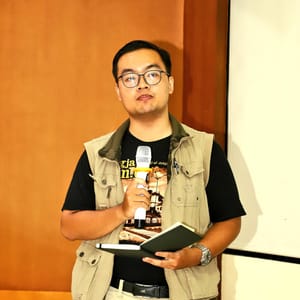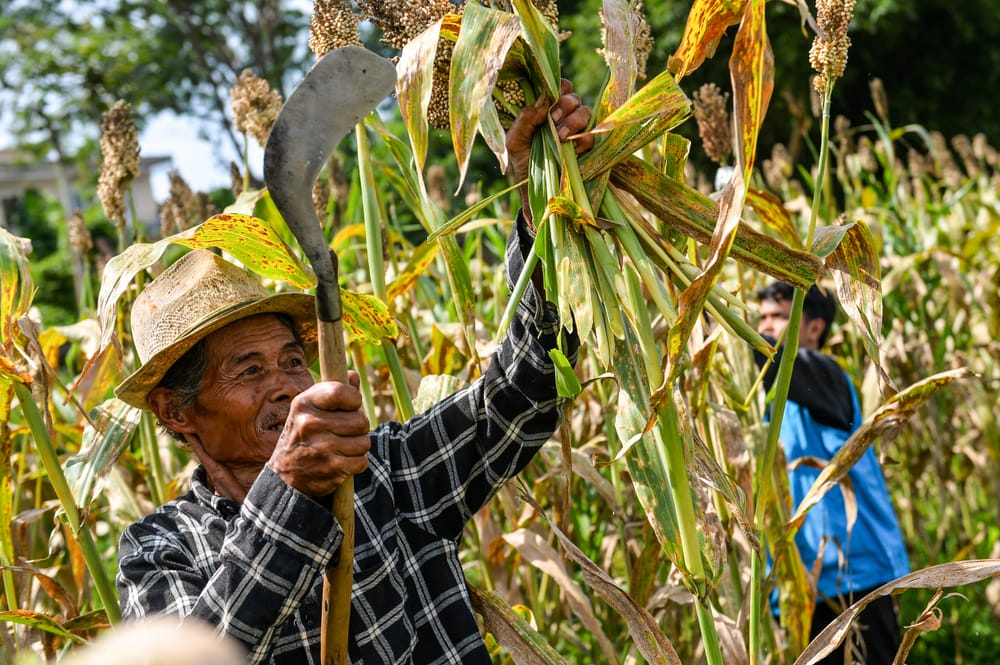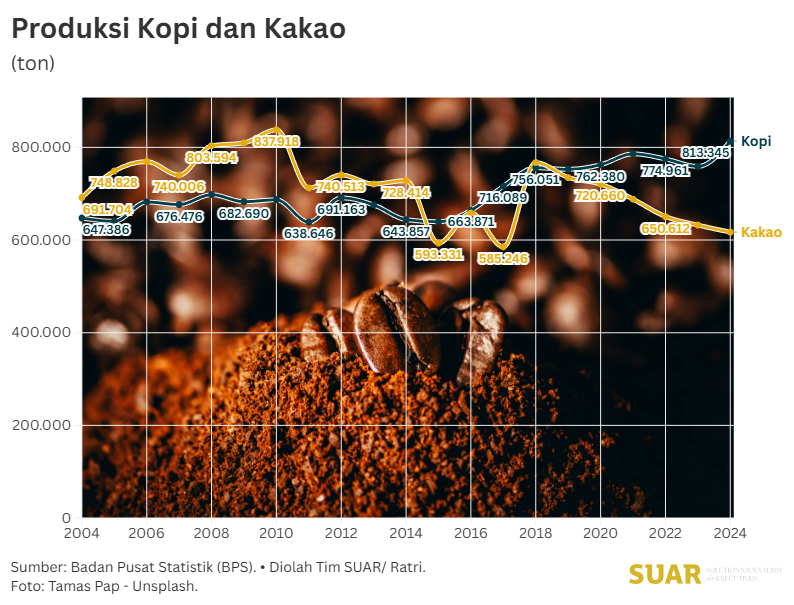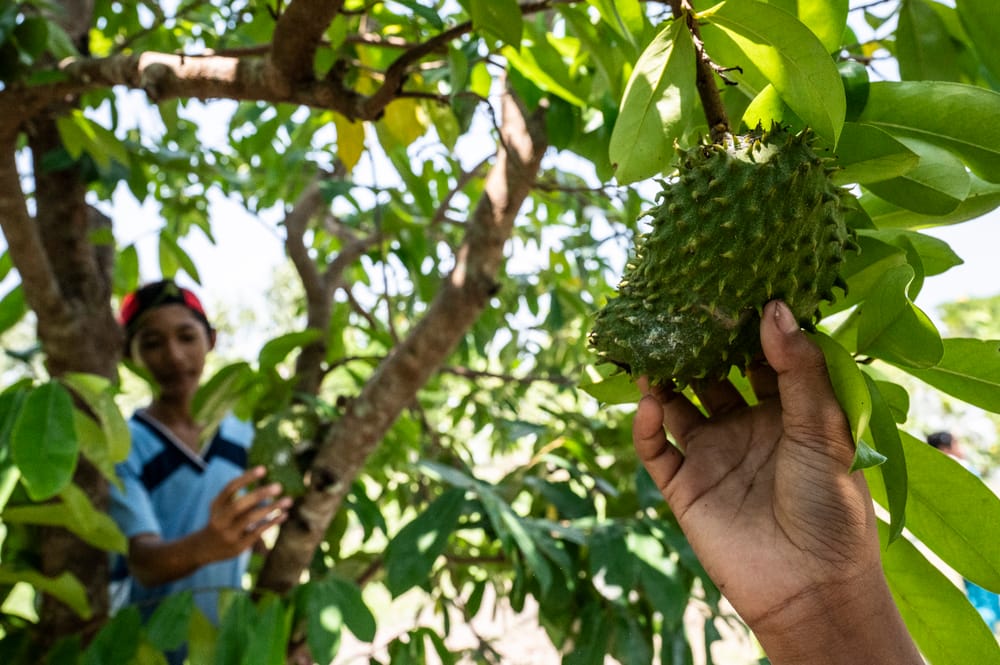The Indonesian government on Thursday (16/10/2025) plans to free up traceability licenses for exports of a number of commodities to the European Union amid concerns from a number of industries and business players in the plantation sector ahead of the implementation of theEuropean Union Deforestation Regulation (EUDR).
This regulation was delayed twice before it was finally scheduled to take effect at the end of December 2026 for large companies and the end of June 2026 for micro and small businesses.
A number of commodities that will enjoy this new scheme include coffee, cocoa, soybeans, rubber, palm oil and timber.
Traceability licenses are used by exporters as proof that the industry meets the principles of sustainability and environmental friendliness. Previously, the cost of processing this traceability license document was borne by companies that imported or processed products according to EUDR rules.
Acting Director General of Foreign Trade of the Ministry of Trade Tommy Andana stated that the effective implementation of EUDR for medium and large-scale exports is a big challenge that cannot be faced by the government alone.
"The government's readiness to face the EUDR requires collaboration and synergy between all stakeholders, so that the implementation of these rules for the required products, namely coffee, cocoa, rubber, soybeans, palm oil, and wood does not reduce the competitiveness of Indonesian products," Tommy said in his remarks at a seminar at the Indonesia Convention Exhibition (ICE) BSD City.
Also attending the seminar were exporters of leading commodities such as coffee, cocoa, palm oil, and rubber, as well as representatives of PT Surveyor Indonesia.
The EUDR was originally to be implemented on December 30, 2025 after a one-year delay at the end of 2024.
However, since the first delay, rejection and protests from industry players have continued. They argued that the EUDR would incur huge costs and hurt exports to Europe.
EUDR is a policy framework to address and mitigate the environmental impacts of deforestation. It aims to reduce deforestation by imposing EUDR requirements on companies that place, supply or export certain commodities and products on the EU market.
Such regulations have a significant impact on commodity exporting countries such as Indonesia, especially the palm oil industry which is one of Indonesia's leading commodities.
Acting Director General of Foreign Trade of the Ministry of Trade Tommy Andana stated that the effective implementation of EUDR for medium and large-scale exports on December 30, 2025 and micro-scale exports on June 30, 2026 is a big challenge that cannot be faced by the government alone.
According to Tommy, the main challenge for Indonesian exporters in facing the EUDR is to build a transparenttraceability system that meets the requirements.
This system requires each exporter to be able to explain the origin of their commodities, from the location of planting, the impact of cultivation of export crops on the environment, to the carbon footprint generated by the activities of the export product processing industry.
Tommy explained that the traceability of an export commodity is closely related to the reputation of the product being shipped. With clear traceability attachments, the Indonesian government can provide a guarantee that the superior quality of Indonesian export commodities is produced from processes that maintain ecosystem sustainability and environmental sustainability.
"If we can fulfill the EUDR requirements, we can open wider market access. Not only Europe will receive our export commodities, but also other countries that apply similar environmental regulations will also have more confidence in the sustainability of our export products," he explained.
Integrated system
As a regulation, EUDR can be categorized as a non-tariff entry barrier. Not only the European Union, other countries ranging from the United States, the United Kingdom, to China have also begun to enforce similar regulations aimed at ensuring the sustainability value of imported products entering their markets.
"Large private players are more agile in adapting to these obstacles. The question is, what about Indonesia's leading export commodities produced by smallholder farmers and farmer groups such as coffee, cocoa, or rubber? This is one point that makes us need to be on guard," said Vice President of Sustainability Surveyor Indonesia Martinus Nata.
According to him, with tremendous export potential, sustainable trade validation based on traceability platforms can encourage a transparent trade climate. Nata assessed that with the existing infrastructure, Indonesia needs to prepare a risk assessment to see the risk of loopholes in each region.
"Europe doesn't understand the definition of forest that we use. In satellite imagery, they see every patch of green as forest. Indonesia has a spatial approach that distinguishes protected areas and cultivated areas. We use the term cultivation to pass the traceability criteria, also because the regulations are already in place," he explained.
As a form of support for leading commodity exporters to Europe, Surveyor Indonesia has prepared a Due Diligence Report Information System that can be a tool for farmers, farmer cooperatives, and exporters to register land and issue due diligence reports that can be given assurance according to ISO 17065 standards.
The result of the Due Diligence Report is a due diligence statement (DDS) that can be verified directly by the Ministry of Trade and Bappenas to obtain an Indicator of Sustainable Jurisdiction (IYB) which is the green light for export shipments to Europe. In order to prepare Indonesian exporters for EUDR, Surveyor Indonesia makes this system free of charge.
"We hope that, with the support of this information system, conformity checking does not need to be done by exporters after the goods arrive in Europe. We can negotiate so that the clearance process is carried out in Indonesia and find a win-win solution. However, the next step remains the authority of the government," concluded Nata.
See it as an opportunity
Instead of seeing EUDR as an obstacle, exporters can use it as an opportunity for market expansion and avoid product misidentification in the field. A traceability platform can be a means to ensure the integrity of domestic products while gaining global trust.
Director of PT Noozcav Coffee Indonesia Daroe Handojo revealed that so far, Indonesian coffee is famous for two things in Europe: quality and quantity. However, Indonesia's coffee export performance often falls below buyers' expectations because good quality coffee cannot fulfill the order quota, while coffee with large quantities does not have the expected quality grade .
Read also:
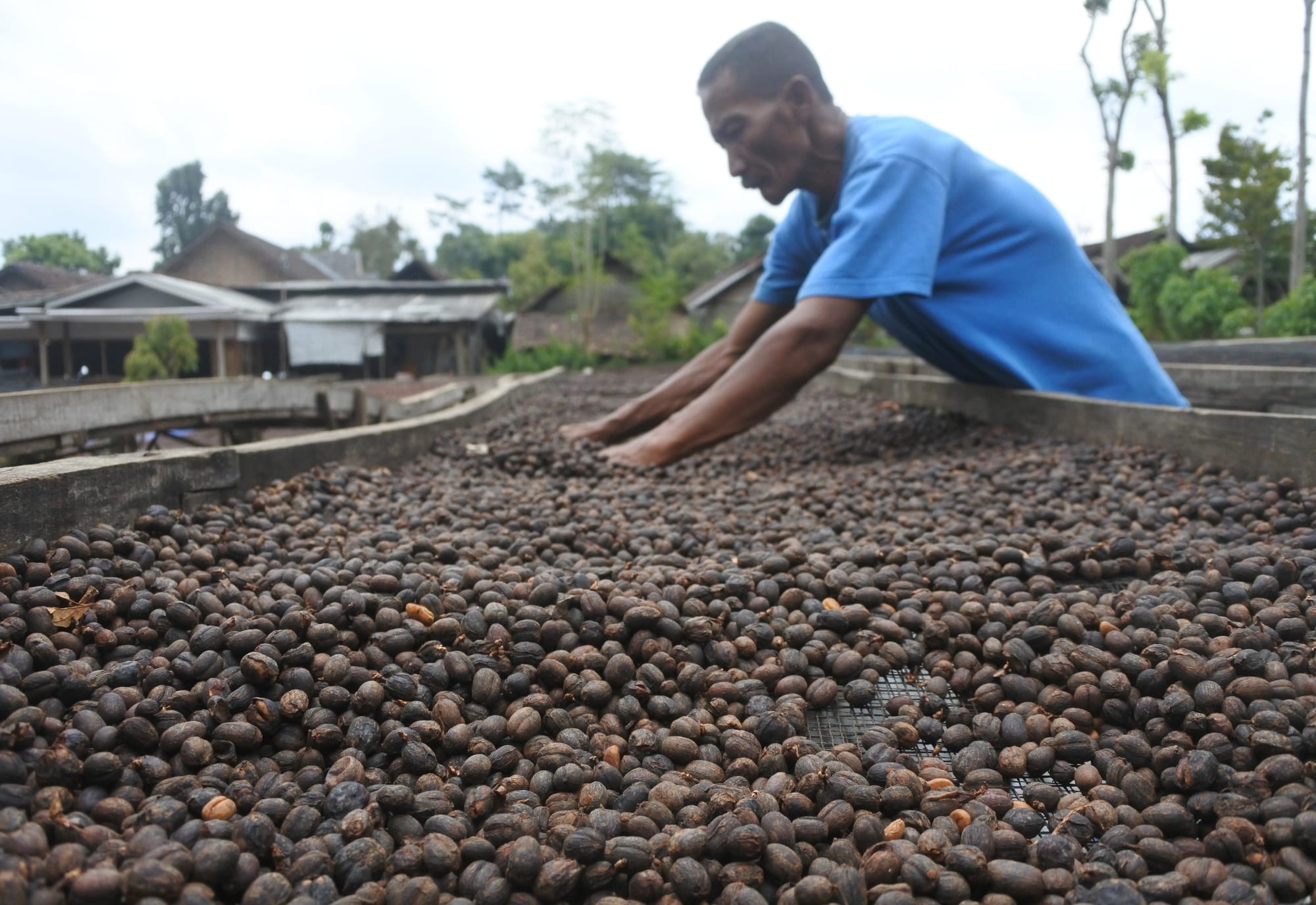
According to him, until 2024, the coffee trade is still largely determined by the quality assessed by traders. However, increasingly, quality will be determined by consumers who have their own criteria in assessing their coffee. Coffee that does not meet the buyers' standards will be "punished" by the market mechanism organically.
"They want to know and wonder, 'Is my coffee healthy? Does it destroy nature? Does it meet environmental standards?" Who else has to prove this, if not the exporter? If they don't comply, it's their punishment, not the trader's," Daroe said.
The availability of the due diligence information system facility as a traceability platform, according to Daroe, is good news for exporters, especially to avoid discrepancies, or product mismatches with the origin stated in the document. Daroe admitted that he found exports of coffee beans written from Mandailing turned out to be Lintong coffee, while beans written Lintong, in fact, came from Vietnam.
"Traceability helps us trace the origin of these coffee beans, while encouraging farmers to become more digitally literate. Of course, this must be accompanied by quality and quantity assurance through post-harvest standardization, involving all parties, and working with coffee farmers with reputation and integrity," he said.
If Indonesian coffee has met the traceability criteria and obtained a sustainability license, the certificate's capital can be transformed to give weight to the narrative of authenticity of coffee origins, which is effective as a marketing instrument. Good advertising packaging, according to him, can also counter news of crop failure that circulates more quickly.
"We have let coffee origin data fall apart for so long, even though traceability is a necessity. With this platform, it is time to empower the 98% of farmers who are the spearhead of Indonesian coffee production that is ready to go global," he said.

